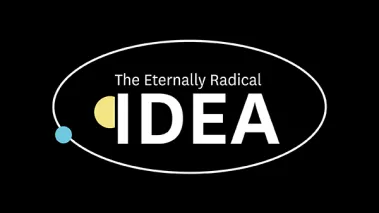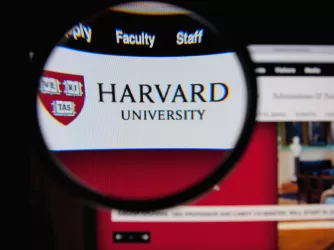Table of Contents
Censorship on Campus in 2012: From Benghazi to Free Speech Zones at the University of Missouri

Looking back at what 2012 had in store for the fight for free speech and basic rights on campus, the best I can say is that it was a mixed bag. There were some encouraging signs along the way, but also many setbacks. For instance, for the fifth straight year, my organization (the Foundation for Individual Rights in Education, or FIRE) found a decrease in the number of campus speech codes. This is good news. However, it sounds a little less exciting when you realize that a pretty miserable 62 percent of top colleges maintain what FIRE dubs "red light" (read: very bad) speech codes. So, some progress has been made, but there is much work still to be done.
One of the more distressing developments of this year was the speed and verve with which some academics decried America's strong commitment to the First Amendment and our substantial free-speech protections in the wake of the Benghazi attack. In the days immediately following the tragedy, many believed the attack was a direct response to a controversial YouTube video. Some academics, including Eric Posner and Anthea Butler, wasted no time seizing this opportunity to proclaim that Americans value free speech too highly.
I spent some time taking these arguments apart in my columns "We Are All Blasphemers" and "Free Speech: Just a Recent Fad?" And certain academics joined me in defending the First Amendment with gusto, including Georgetown law professor David Cole in his piece "More Speech is Better" in The New York Review of Books. But I ended my campaign when it became increasingly clear that the video was not the cause of the Benghazi attacks. Given that even the CIA admits that the attacks on the compound were not a response to that video, I hope professors like Posner and Butler will reconsider their stance. Sadly, I doubt they will; as I have discovered in my work, the idea that we must curtail that nasty First Amendment in the name of other (often shifting) values has a surprising amount of currency in academia -- the very institution that, perhaps, most relies on free speech in our society.
What concerns me even more, however, are the attitudes and beliefs of today's college students about freedom of speech. Here, once again, 2012 brought some good news and some bad news.
One of the more distressing moments, for me, came when I appeared on Central Standard, a National Public Radio show on KCUR out of Kansas City, to discuss my new book Unlearning Liberty: Campus Censorship and the End of American Debate. The host invited a student panel to join us and they talked about their concerns regarding speech-restrictive policies and practices at their colleges. I became pretty distressed when I listened to Roze Brooks, a clearly intelligent, plugged-in, and thoughtful student at University of Missouri-Kansas City (UMKC), share her thoughts on free speech on campus in general.
What upset me wasn't just her discussion of UMKC's "free speech zone" policies, which not only restricted demonstrations and other free speech activities to small parts of campus, but also required that students obtain 10 days' advance permission in order to use those zones. After all, such rights violations are quite common on campuses across America. I was distressed because Brooks seemed to matter-of-factly accept the requirement of advance state permission to express oneself -- despite the fact that zones like these have been immediately overturned every single time they have been challenged in court.
Her words were just another confirmation of a fear that has plagued me for years: that no matter how strong our First Amendment protections might be, and no matter how wise the reasons for those strong protections are, they don't matter very much if students don't know what their rights are in the first place, and don't understand when they're being violated.
That is why I was extremely pleased to see that Brooks later wrote an article for UMKC's student paper that was highly critical of her university's speech policies, especially its absurd and, in my opinion, flatly unconstitutional free speech zone policy.
But the cases we see at FIRE seem to indicate that voices like Brooks' are beginning to grow less common as the attitudes that college students hold about free speech rights shift toward acceptance of repression, in some cases even championing censorship.
The battle to protect free speech on campus rests upon making sure that students are educated about and engaged in protecting their rights. That is why I think it is only fitting to end my last post of 2012 with some words from a student that inspired some real hope in me. This is how Danielle Charette, a student at Swarthmore College concluded a recent column about the issue of free speech on campus in Swarthmore's The Phoenix:
"Everyone here at Swarthmore, I'm willing to say, desires a safe and respectful learning environment. Part of that entails not wishing to be personally offended or to willingly offend others. But we cannot be so paralyzed by fear of offensiveness that we instead paralyze free speech. There is no guarantee against being offended in this world, especially not in a place like Swarthmore which purports to engage and debate some of life's most heated questions in a rigorous academic setting. As John Stuart Mill eloquently reminds us, '[T]he peculiar evil of silencing the expression of an opinion is, that it is robbing the human race; posterity as well as the existing generation, those who dissent from the opinion, still more than those who hold it. If the opinion is right, they are deprived of the opportunity of exchanging error for truth: if wrong, they lose, what is almost as great a benefit, the clearer perception and livelier impression of truth, produced by its collision with error.' Speak your mind, Swatties."
Recent Articles
FIRE’s award-winning Newsdesk covers the free speech news you need to stay informed.

‘I hate freedom of opinion’ meme leads to sentencing in German court

Revoking Harvard’s tax-exempt status will threaten all nonprofits

Grandpa’s advice for the new wave of American censors
